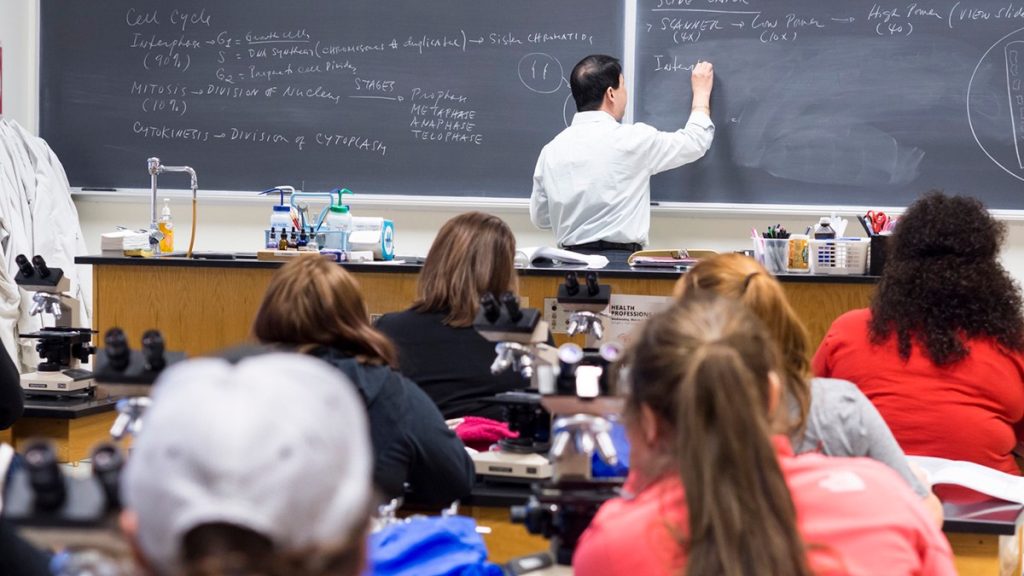JAKARTA, studyinca.ac.id – Academic departments serve as the backbone of educational institutions, specializing in various fields of study that equip students with the knowledge and skills necessary for their future careers. Each department plays a crucial role in shaping the academic landscape, offering specialized programs that cater to diverse interests and professional aspirations. This article explores the significance of academic departments, their structure, and how they contribute to shaping the future of students.
Understanding Academic Departments
What Are Academic Departments?

Academic departments are divisions within educational institutions responsible for specific areas of study. They consist of faculty members who are experts in their respective fields and are dedicated to teaching, research, and community engagement. Academic departments not only provide students with specialized knowledge but also foster critical thinking, creativity, and problem-solving skills.
The Structure of Academic Departments
Academic departments typically include the following components:
- Faculty Members: Professors and lecturers who teach courses, conduct research, and mentor students.
- Curriculum Development: Departments are responsible for designing and updating their curricula to ensure they meet current industry standards and academic rigor.
- Research Opportunities: Many departments offer students the chance to engage in research projects, allowing them to apply theoretical knowledge in practical settings.
- Advising and Support: Faculty members often serve as academic advisors, guiding students in course selection and career planning.
The Role of Academic Departments in Higher Education
1. Specialization and Expertise
One of the primary functions of academic departments is to provide specialization in various fields. This specialization allows students to delve deeply into their chosen area of study, gaining expertise that is essential for their future careers.
Example: The Department of Computer Science offers courses in programming, data analysis, and artificial intelligence, preparing students for careers in technology.
2. Interdisciplinary Collaboration
While academic departments focus on specific disciplines, they often encourage interdisciplinary collaboration. This approach allows students to explore connections between different fields, fostering a more comprehensive understanding of complex issues.
Example: The collaboration between the Department of Environmental Science and the Department of Public Policy can lead to innovative solutions for sustainability challenges.
3. Research and Innovation
Academic departments are often at the forefront of research and innovation. Faculty members engage in cutting-edge research that contributes to advancements in their fields, while students have the opportunity to participate in these projects.
Example: The Department of Biology may conduct research on genetic engineering, allowing students to work alongside faculty on groundbreaking studies.
4. Community Engagement
Many academic departments prioritize community engagement, encouraging students to apply their knowledge in real-world settings. This involvement helps students develop a sense of social responsibility and enhances their practical skills.
Example: The Department of Education might partner with local schools to provide tutoring and mentorship programs, benefiting both students and the community.
The Impact of Academic Departments on Students
1. Personalized Learning Experiences
Academic departments offer personalized learning experiences tailored to students’ interests and career goals. Smaller class sizes and specialized courses enable faculty to provide individualized attention and support.
2. Career Preparation
By focusing on specific disciplines, academic departments prepare students for their future careers. They offer internships, networking opportunities, and career services that connect students with potential employers.
Example: The Department of Business may provide students with internship opportunities in local companies, enhancing their employability upon graduation.
3. Development of Critical Skills
Academic departments emphasize the development of critical skills that are essential for success in the workforce. These skills include analytical thinking, communication, teamwork, and problem-solving.
Example: The Department of Psychology may focus on developing students’ research and communication skills through group projects and presentations.
4. Lifelong Learning
Through their specialized programs, academic departments instill a love for lifelong learning in students. Graduates often continue to seek knowledge and development in their respective fields, contributing to professional growth.
Challenges Facing Academic Departments
1. Funding and Resources
Many academic departments face challenges related to funding and resources. Budget cuts can limit the availability of courses, faculty positions, and research opportunities.
2. Keeping Up with Industry Changes
As industries evolve, academic departments must adapt their curricula to remain relevant. This requires continuous assessment and updating of programs to reflect current trends and technologies.
3. Balancing Teaching and Research
Faculty members often juggle teaching responsibilities with research commitments. Finding the right balance can be challenging, impacting the quality of both teaching and research.
Strategies for Enhancing Academic Departments
1. Curriculum Innovation
Academic departments should prioritize curriculum innovation to keep pace with industry demands. Regularly updating course offerings and integrating new technologies can enhance the learning experience.
2. Faculty Development
Investing in faculty development is essential for maintaining high-quality teaching and research. Professional development opportunities, such as workshops and conferences, can help faculty stay current in their fields.
3. Strengthening Industry Partnerships
Building strong partnerships with industry can provide academic departments with valuable insights into workforce needs. These partnerships can lead to internships, guest lectures, and collaborative research projects.
4. Enhancing Student Support Services
Academic departments should focus on enhancing student support services, including academic advising, tutoring, and career counseling. Providing comprehensive support can improve student retention and success.
Conclusion
Academic departments play a vital role in shaping the future of students by providing specialized knowledge, fostering critical skills, and promoting career readiness. As institutions continue to evolve, it is essential for academic departments to adapt to changing demands, invest in faculty development, and enhance student support services. By doing so, they can ensure that they remain at the forefront of education, equipping students with the tools they need to succeed in an ever-changing world.
Improve Your Abilities: Explore Our content on Knowledge
Take a Look at Our Latest Article on Research Grants!

